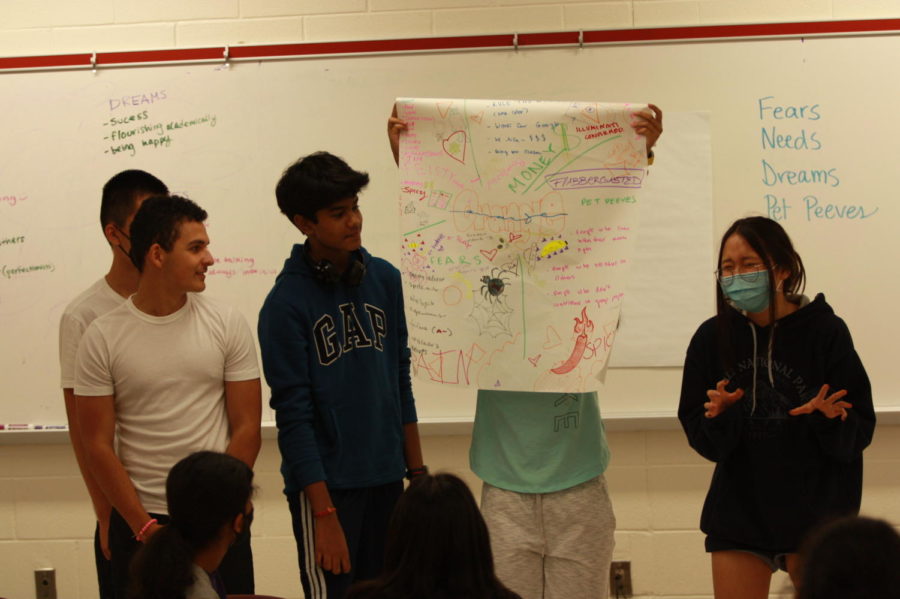It’s time we escaped icebreakers
Participating in an icebreaker, IBET students are sorted into colors based on personality traits. Each group brainstorms fears, needs, dreams, and pet peeves and then presents them to the rest of the IBET.
August 31, 2022
I awkwardly glance across the room and my chair squeaks as I get ready to stand. It’s just a few seconds of speaking: two truths and a lie. I take a deep breath and the words just spill out.
“I have an older sibling, I love doing icebreakers, and I don’t have a pet.”
So which one’s the lie? I love doing icebreakers.
While the first week of school is always filled with finding classes, navigating the school, or even reconnecting with friends after the summer, it’s hard to escape the infamous icebreakers and awkward introductions.
Popular icebreaker activities include saying your name and a fun fact about yourself, asking would you rather questions, finding a list of things in common with each other, and even a show and tell. While some teachers enjoy icebreakers because it helps students connect with their peers, these activities don’t actually help students get to know each other, but instead, become a forced activity that adds to the anxiety of the first week of school.
First impressions are scary enough without having an icebreaker prompt to follow. They limit the natural flow of conversation and put students in the spotlight rather than stimulating discussion.
Not all icebreakers are bad — there are always the fun ones like creating the tallest building out of spaghetti and marshmallows or team trivia. What’s different about these is that they don’t put students on the spot but instead allow for natural conversation and connections between students while they work together to achieve a challenge or win a prize.
Icebreakers shouldn’t be a part of the worries of the first week of school, so why are we still doing them?










